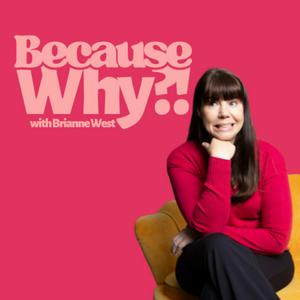A lot of the episodes this year looked at processes we’re supposed to put our faith in – the things that are supposed to make our lives more sustainable or our impact on the planet a bit less terrible.
Stuff like supposed “green” solutions, chocolate that’s marketed as ethical, or the wellness industry promising to save your life.
And yes, we all know some of this is a scam, but I don’t think we really appreciate just how much of a scam it actually is.
So, to wrap up season three, instead of a brand-new episode, you get a recap of the most interesting episodes – the ones that made me frustrated, fascinated, and occasionally hopeful. Three years of consistently inconsistent podcasting later, here we are. You’re welcome.
The past few weeks have been… a lot. Popcorn, my horse, has been trying to die. University exams happened. Incrediballs 2.0 is launching soon. And yes, I might be a little burnt out. But, like a grown-up, I’ll push ahead and see how ignoring that goes.
In this episode, let’s go through:
How much of a scam the things we’re supposed to trust really are
The invention of synthetic nitrogen fertiliser and why it matters for the planet (and our food)
The environmental and human cost of cocoa farming and lawn culture
Disinformation and the totally unregulated wellness industry
How to even begin talking to the climate confused
Some fun and surprising science (yes, really) from fire, to 5G and plane toilets
Thanks for joining me on this episode of Because Why?!
Mā te wā - see you in 2026!
You can get involved with the podcast online in the meantime, of course.
Find our full podcast via the website here: https://www.nowthatwhatsicall.com
Instagram: https://www.instagram.com/becausewhypod/
You can follow me on socials on the below accounts.
Instagram: https://www.instagram.com/briannemwest/
Tiktok: https://www.tiktok.com/@briannemwest
Linkedin: https://www.linkedin.com/in/briannemwest/
For our latest big project, find out more about Incrediballs here: https://incrediballs.com/


